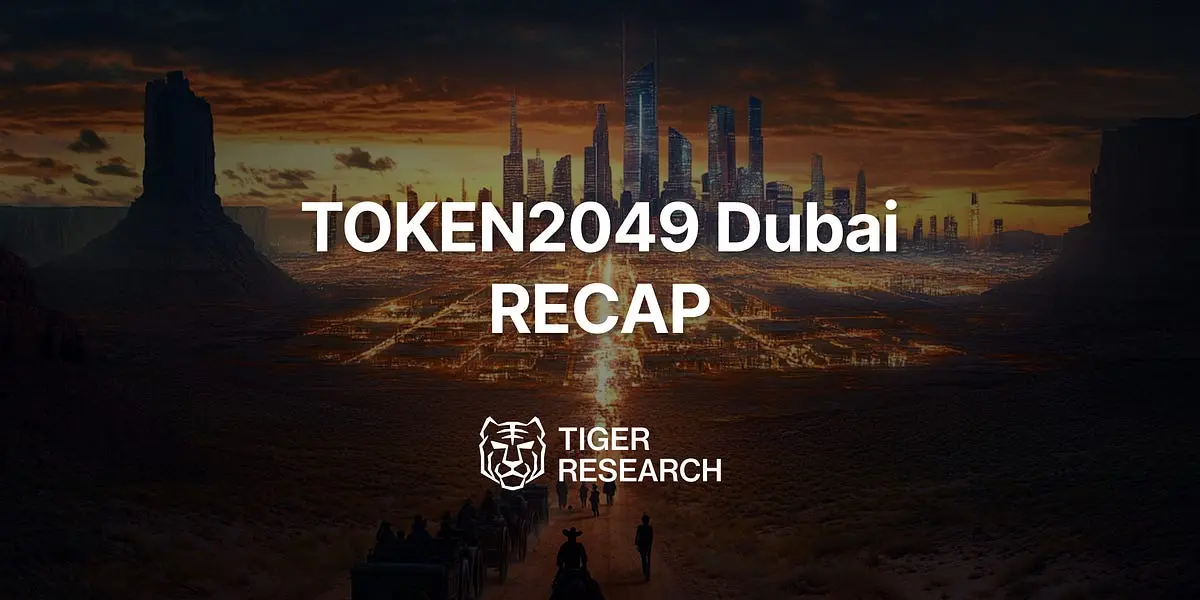Paradigm: 5 Key Recommendations for Hiring a BD Leader in Crypto Projects
Original Title: "A Crypto Founder's Guide to Hiring BD"
Author: Nick Martitsch (Head of Paradigm GTM)
Compiled by: Deep Tide TechFlow
In the cryptocurrency space, the competition for early growth leaders is becoming increasingly fierce, and projects are increasingly inclined to hire influential KOLs as members of their early core growth teams. The core reason behind this is that for Web 3 projects, distribution capability is often the key factor determining their success or failure. Finding the right business development (BD) leader and hiring at the right time can have a significant impact on the growth trajectory of a project.
This article summarizes some advice from the Paradigm team for entrepreneurs regarding the first hire of a BD leader, covering various aspects from timing to capability requirements.

The BD (business development) leader plays a crucial role in driving the growth of a project's TVL (total value locked). The responsibilities of BD go beyond market expansion and user acquisition; they also include building partnerships, optimizing product distribution strategies, and driving ecosystem expansion. An excellent BD must possess strong communication skills, keen market insight, high execution capability, and a strong sense of responsibility. From the founder's perspective, considerations for hiring a BD include timing, capability assessment, and execution evaluation.
Don't Give Up on Founder-Led Sales Too Early
Founders are often the best salespeople for their own products. Maintaining a founder-led sales model is crucial during the process of securing initial customers and building the MVP (minimum viable product) for the following reasons:
Easier to Close the First Deal: For startups that have not yet launched their products, customers are more likely betting on the founder's ability to deliver an exciting product vision rather than the existing product itself. Compared to hired BDs, founders can more effectively persuade potential customers with technical details, product vision, and enthusiasm, encouraging them to be the first to take the leap.
Helps Build a Better Product: In the early stages of a company, sales and product development should be the same process. Founders need to establish a close feedback loop with potential customers to refine the v1 product development roadmap based on their input. Introducing new employees during this process may create unnecessary friction and communication barriers.
Generally, when a project has validated the initial user demand and needs to promote the product to a broader market, it can start considering hiring the first BD leader. For protocol projects that need to build a broad external ecosystem before launch, this process may begin earlier. However, in most cases, it is best to wait until the project has a small number of loyal customers before hiring.
Transforming "Flexible Experimentation" into "Scalable Models"
The BD leader should transform the founder's method of finding initial customers "in a non-scalable way" into a scalable, repeatable sales model to help the company acquire the next hundred or even thousand customers. Here are the key tasks that the BD leader should be responsible for in the early stages of the project:
Build a CRM system suitable for the company's development (such as Excel, Salesforce, Copper, etc.) and populate it with relevant data from the target market.
Qualify inbound inquiries, initiate outreach to new potential customers, and involve the founder in key deals to assist in closing.
Hold weekly product line meetings to help the leadership team understand market penetration and bottlenecks in the sales process.
Create sales promotion materials (such as customer case studies, product updates, onboarding guides, etc.) and test which selling points can drive potential customers' decisions.
As the person most familiar with customer needs, provide direction to the product development team to ensure the team focuses on developing key features and capabilities.
In summary, an excellent BD leader needs to be able to build sales infrastructure while also leading the end-to-end sales process. Having only one of these capabilities is not enough.
High Autonomy and Adaptability in the Crypto Space
Research shows that some of the best-performing BD leaders are often former entrepreneurs or early employees who built something from scratch in their previous companies. They understand their responsibilities and have a high sense of accountability for the progress of their work and the company's goals.
In addition to strong communication and organizational skills, "crypto-nativity" should also be a key focus in hiring. Here are some soft skills that help assess whether candidates can persist through multiple industry cycles:
Adaptability: Early sales roles in the crypto industry are vastly different from sales roles in large, mature companies. In the latter, most processes, infrastructures, and narratives are already established. Crypto growth leaders need to improvise and adjust sales strategies in response to changing market conditions and narratives, as effective strategies in a bull market may completely fail in a bear market (and vice versa).
Resilience: Due to the cyclical nature of the industry, candidates need to have a high passion for the mission of the crypto industry and should not be easily discouraged by delayed results. Successful BD strategies in the crypto space are often found after multiple failures, learning, and iterations. Candidates driven solely by short-term financial gains are often eliminated during inevitable market downturns.
While it is challenging to find candidates who meet all requirements, BD leaders with high autonomy and adaptability in the crypto space will lay the foundation for the project's success.
Do Not Overlook Tactical Execution Capability
Many crypto startups often focus too much on strategy during their growth process while neglecting the critical role of tactical execution. According to a survey on decision-making for purchasing application technology stacks, surprisingly, the determining factor is often just response speed—such as timely replies to inbound inquiries, quick follow-ups on phone communications, or the ability to efficiently resolve complex technical issues.
The compounding effect of good tactics can create long-term winners. Tactical execution is not just about the ability to complete tasks; it is also a direct manifestation of sensitivity to customer needs and actionability. Excellent execution can quickly build customer trust, optimize sales conversion rates, and gain an advantage in a competitive market. Therefore, it is crucial to prioritize candidates who can organize efficient sales processes and prevent potential customers from falling through the cracks. Here are some interview questions that can be used to assess candidates' sales capabilities:
What criteria would you use to categorize inbound inquiries into low, medium, and high priority? How would the sales process differ for inquiries of different priorities?
In exploratory business calls, what questions would you ask to determine if a potential customer is a good fit for us?
Do you think it is appropriate to directly present a presentation during a call with a potential customer? Or how would you prefer to guide the sales call?
How quickly would you follow up with a potential customer after the initial sales call? What information would you typically send?
If a potential customer becomes disengaged, what strategies would you try to re-engage them?
If a potential customer enters the implementation phase, how would you adjust your communication platform, style, and frequency?
The value of execution lies in its ability to translate strategy into actual results. No matter how sophisticated the strategy, without solid execution to support it, it remains just theoretical. For BD leaders, while it is important to help formulate the company's distribution strategy, the real effectiveness often lies in the handling of daily details. Efficient tactical execution not only allows for quick responses to market demands but also establishes a differentiated advantage in customer experience, thereby earning long-term trust and reputation for the business.
Thus, when selecting a BD leader, it is essential to focus not only on their strategic capabilities but also on their execution ability to drive things to fruition in practice. Only with both can they truly provide sustained momentum for the company's growth.
Measuring Performance with Auxiliary Metrics
In an emerging industry like crypto, many external factors can affect the achievement of traditional growth targets, such as revenue, TVL, customer numbers, or transaction volume. While it is crucial to use these growth targets that can showcase the results of the BD process as primary assessment metrics, it is equally important to pay attention to the auxiliary metrics that drive these results.
Founders should set a clear North Star goal for the BD function based on market signals obtained from early sales. Additionally, a series of auxiliary metrics should be established to respond to market changes, regulatory shifts, or other macro events.
Here is an example of goals that founders can set for the BD leader:
North Star Goal: Achieve $5 million in ARR (annual recurring revenue) by the end of the year.
Key Metrics:
Number of new paying customers
Average contract value (ACV) per customer
Auxiliary Metrics:
Number of deals entering the evaluation stage
Number of new potential customers
Number of exploratory calls completed with potential customers
Number of outreach messages sent to potential customers
Why Are Auxiliary Metrics Crucial?
The value of auxiliary metrics lies in their ability to help the team identify bottlenecks in the BD process. For example, if the number of new potential customers is low, it may indicate a need to optimize customer acquisition channels; if the number of deals entering the evaluation stage is insufficient, it may require improvements in the mid-to-late stages of the sales funnel. Through these metrics, the team can identify problems and take action more quickly, rather than waiting for poor performance in primary metrics to start reflecting.
Dynamically Adjusting Metrics to Adapt to Changes
The pace of change in the crypto industry is rapid, and external environments (such as market fluctuations, regulatory policy adjustments, or technological breakthroughs) can have a significant impact on the business. Therefore, founders need to regularly review these auxiliary metrics and adjust them based on actual conditions. For instance, if the market environment cools, it may be necessary to focus more on the quantity and quality of outreach messages; if competition intensifies, greater attention may need to be paid to the success rate of exploratory calls and customer conversion efficiency.
Through this framework, founders can not only better balance the external influences of the crypto industry but also ensure that the BD process remains efficient. At the same time, auxiliary metrics can motivate the team to focus on controllable, specific actions, thereby creating more growth opportunities for the business amid uncertainty.
Conclusion
Interestingly, many excellent BDs eventually grow into project founders. This is not surprising, as they deal with the market, products, and users daily, deeply understanding the entrepreneurial path of "from 0 to 1." Perhaps the BD you hire today will be the founder of the next Web3 unicorn tomorrow.
Finally, I wish all project teams can find that "God BD" and take off!









